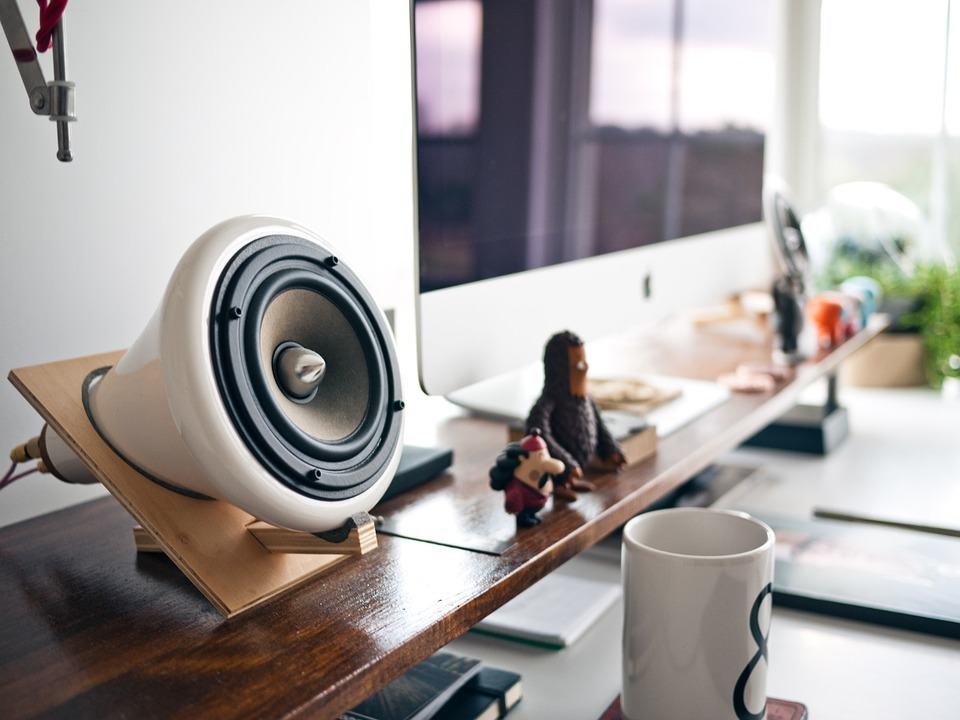
Can music really be so loud you can’t hear yourself think? Well, according to research, it might be too loud to allow your creative juices flow.
Studies have consistently shown that music triggers creative thinking. Here’s an example:
Music could be an alternative to drugs as therapy for mental health issues, a report indicates.
Based on a study at the University of Helsinki, research shows that classical music has a tempo-regulating effect on genes responsible for generating feelings of pleasure.
Participants in the study listened to Mozart, and scientists noted greater improvement of brain function in those who were already familiar with the music compared with those who were not. Via HNGN
In addition to all this, it’s now also clear that the volume of the music is very important.
A study published by Oxford University found that listening to moderately loud music enhance a person’s performance on creative tasks. In contrast, a high level of noise is detrimental to creativity. However, this does not mean you should play the music too low. The researchers also found that moderately loud music will enhance creativity more than music at very low volumes.
Background noise, particularly in the form of music, can lead to greater creativity. Louder noise or music, however, can negatively impact the ability to process information and leads to impaired creativity. Via HNGN

These are very important findings, particularly for the modern workplace of which music has increasingly become a part. As someone said, “Art is how we decorate space; music is how we decorate time.”
Music, for instance, has been found to make repetitive tasks more enjoyable. When performing tasks that are clearly defined and repetitive, listening to music would be helpful in making them less tedious and boring.
Assembly line workers showed signs of increased happiness and efficiency while listening to music, for example.
…Music with a dissonant tone was found to have no impact to productivity, while music in the major mode, or key, had better results: “Subjects hearing BGM (background music) achieved greater productivity when BGM was in the major mode.” Via HelpScout
Many people find it difficult to work in open-office settings simply because of the resulting noise. While employers may assume that listening to music via headphones would distract an employee from his or her work, the opposite may be true.
While the open space encourages more collaboration, the noise can be too much for some people to handle when engaging in deep work. If there is no physical escape—such as a private room—then a pair of headphones may be the best alternative. Via HelpScout

If you’re creating a work playlist, it’s always best to go with music with no lyrics, particularly if you require a lot of focus for the task. Lyrics can be quite distracting and thus destructive to focus.
Research shows that “intelligible” chatter—talking that can be clearly heard and understood—is what makes for a distracting environment. Shifting focus to figure out what someone else is saying is the reason why speech is often considered the most troublesome element of a noisy office; in one study, 48% of participants listed intelligible talking as the sound which distracted them the most.
Trying to engage in language-related tasks—such as writing—while listening to lyrics would be akin to holding a conversation while another person talks over you… while also strumming a guitar. Lyrics are often a no-go. Via HelpScout
However, this may not apply to absolutely all high-focus tasks
Lyrics might not have the same effect on creative tasks that don’t directly deal with “verbal architecture.” This study that looked at software developers suggested that music with lyrics helped their output while working. Via HelpScout

You also need to limit your playlist to music you’re already familiar with. This should always be the case even if your playlist includes music with lyrics. With new music, you’ll be inclined to pay attention to what comes next. It’s the surprise element of new music that makes it so enjoyable, but that’s exactly what will draw your focus from the task at hand.
With familiar music, you know what lies ahead. Paying attention requires less focus.
While the “journey” of new music can be beneficial in other ways, it’s best to tread a familiar path if you are using music to get things done. Via HelpScout
Featured Image: Image Credit
Everyone has a song in their playlist which they always skip, but never delete.
— Patama Posts™ (@PatamaPost) February 21, 2016
Some big shoes to fill. In this playlist, kids honor the icons who paved the way: https://t.co/HpMDNIf8FD pic.twitter.com/TBvLl9FMZr
— YouTube Creators (@YTCreators) February 22, 2016
Related Articles:
Ask McArdle: Why don’t offices have background music?
Why don’t offices have background music? If some Lite FM feels right at the dentist, why not, say, a bank?
Have you considered that your local tooth-torturer is just using Kenny G to mask the sounds of his maniacal drilling? Still, it’s a worthy conundrum: Unless your office is a retail outlet, radio station or elevator, your background music is likely limited to the soft hum of a ventilation system. Not exactly inspiring.
In the right setting, music can help tune out distractions and spark creativity. A recent study from the Wake Forest School of Medicine and the University of North CarolinaAsk McArdle badge found that listening to music can help people focus their attention, but—and here’s the catch—only if it’s music they like. Via Canadian Business
Want to be more creative? Here’s what music to avoid at all costs
Science says, when it comes to creativity, you are what you listen to.
You can dial up a mood, mindset or on demand by playing music that generates a specific emotional response in you. Pick the right tunes and you’ll boost mood, concentration, fire new synapses and enhance the proliferation of creative thoughts. Music can also fight loneliness and drive you on through times of stress and pain. Perfect for the creative freelancer on a deadline, right?
Music is all powerful. Just ask Christopher Bergland, the Guinness World Record runner and Triple Ironman Champion (that’s a 7.2-mile swim, 336 miles on a bike, then a 78.6-mile run, one after another). He says: “I used music to stay optimistic and see the glass as perpetually half-full while doing ultra-endurance races. You can use music as a tool when you work out or in your daily life the same way.” Via Creative Boom
How to craft the perfect playlist for productivity
Nothing has more of a negative impact on my workday than forgetting my headphones.
Like most people, music is a huge part of my life. I listen to the most music while I work, sifting through playlists, from neo classical to indie to electronica on what seems like a never-ending search for the perfect tunes to keep me in the zone.
We spend so many of our days at work, and so much of our workdays in front of a screen, that music has become indispensable in keeping us happy, motivated, and productive. Via Crew

